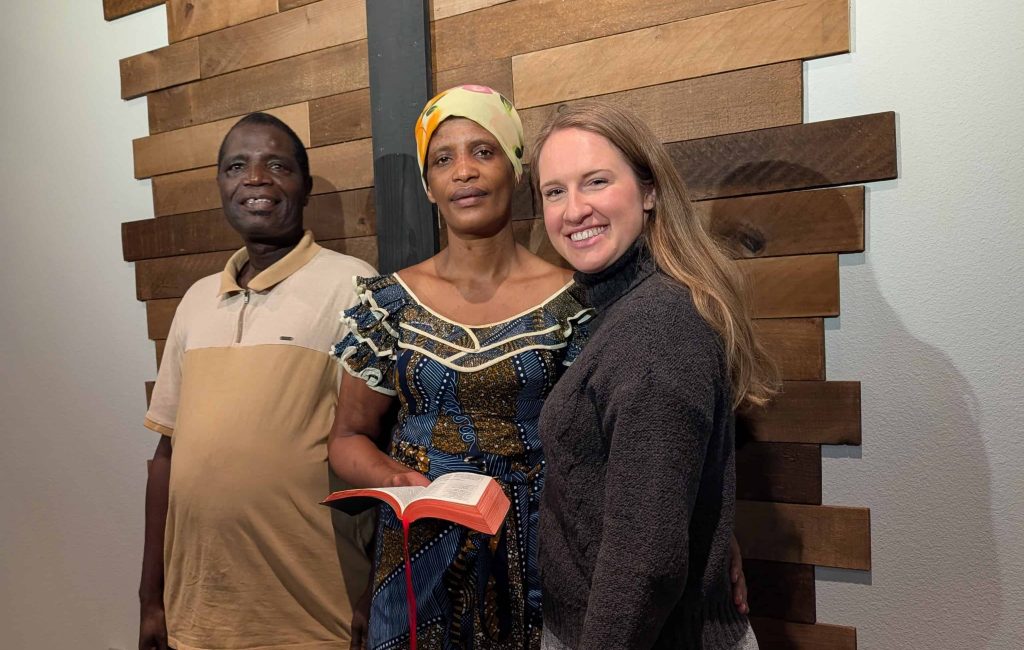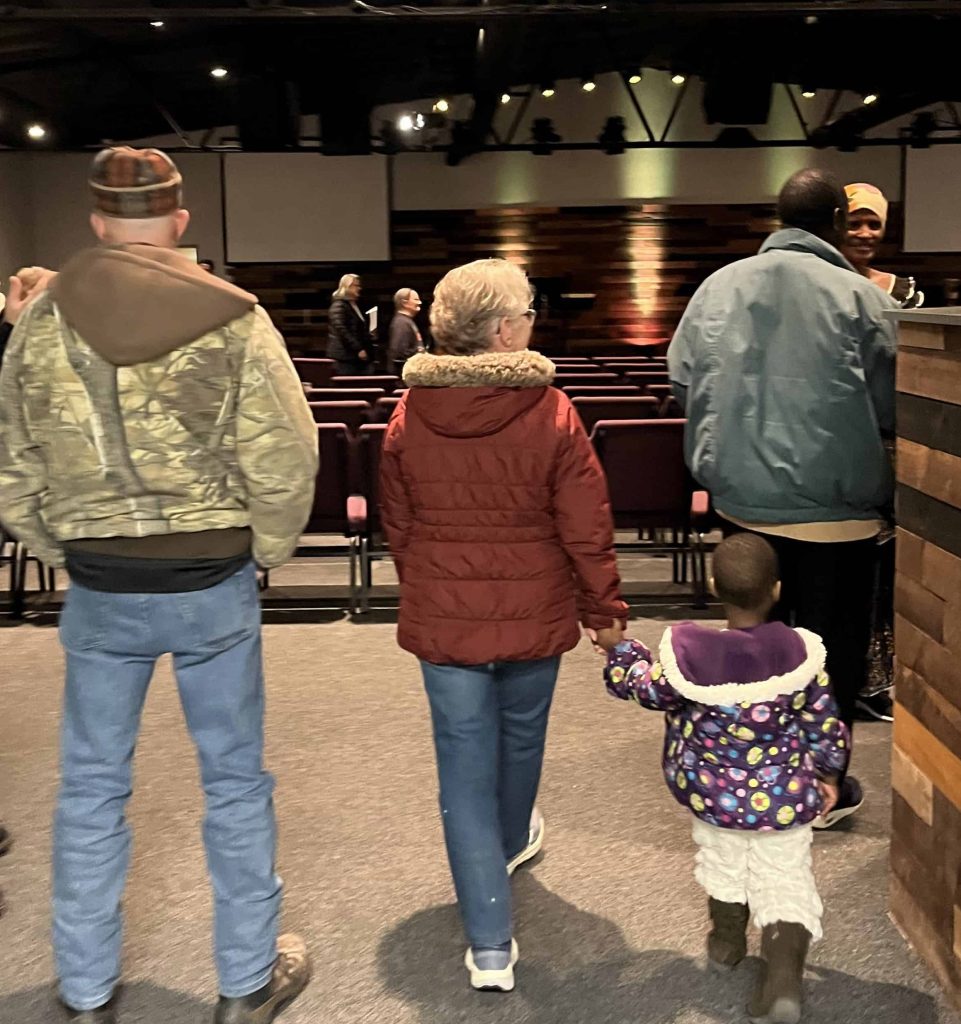|
Getting your Trinity Audio player ready...
|
Be joyful in hope, patient in affliction, faithful in prayer.
—Romans 12:12
Decades of hope, patience and faith led to a fervent prayer answered in fall 2024 for a close-knit Congolese family that recently found safety and a welcoming community in Kaukauna.
Family and friends gathered at the Appleton International Airport on Sept. 24 to celebrate the long-awaited arrival of the last of Gihogazi and Jonas’s seven children to arrive in the Fox Valley.
Just a few weeks earlier Gihogazi had thrown up her arms and dropped to her knees in prayer in World Relief Wisconsin’s Appleton office upon hearing that her whole family would finally be reunited.
As word spread of the news, Gihogazi’s joy echoed throughout her village, a community of support, including church friends and World Relief Wisconsin (WRW) staff.
At the airport, both cheers and tears marked the occasion that served as a testament to the power of prayer and perseverance.
Just 1.5 years earlier, Gihogazi and Jonas and their three youngest children had landed at this same airport following an arduous 11-year process to seek a life of freedom and security in the U.S.
“I was just thanking God for embracing me in this country to start having a good life,” Gihogazi recalled.
Seeking safety

The couple’s story began in the Democratic Republic of the Congo (DRC), where they married in 1996—the year the First Congo War began.
Conflict and political instability persisted in their birth country for decades, impacting access to food, healthcare and other basic needs.
“It was a very, very hard life. Because of the war, we had to move to Burundi. We had been living in the forest for fear of walking at night,” Gihogazi explained.
She was 30 years old in 2000 when the couple, their three sons and a daughter sought refuge at a camp in Burundi through the United Nations High Commissioner for Refugees (UNHCR).
Despite better access to food, clothing and shelter, their daughter died due to hunger in the camp.
Gihogazi’s faith remained.
“God protected us, and we did not all of us die,” she said.
Years passed. Four more children were born. In 2013, they started the resettlement process. Gihogazi had her first UNHCR interview in 2015.
“The United States was our first choice. They used to tell us the U.S. was where there was the most success and with good incomes,” she said.
When word finally came that they would head to Appleton in June 2023, “it was a very good moment.”
“We prepared food to celebrate but we could not eat it because everyone in the house was so happy,” she said.
Making a new home
The first months in the U.S. passed quickly as the family worked to open a bank account, secure identification cards, insurance and employment and register the children for school.
“The family is amazing,” said Marlo, who served as their resettlement caseworker during the crucial first 90 days.
This time of transition included reuniting with an older daughter and two older sons and their wives and children who had arrived in the U.S. within three weeks of each other.
“They were just over the moon excited and very grateful,” Marlo said. “They have a deep belief in God and a belief that God’s love knows no bounds.”
Naturally, there have been bumps in the road.
Jonas, who had years ago suffered hearing and memory loss due to fever, had difficulty communicating and finding a job. He has gone to many appointments and undergone numerous tests with the hope of having cochlear implant surgery someday.
Gihogazi and her two daughters first found work at a local café. She and her older daughter now work at Outagamie Recycling, while the younger one, at 20, remains at the café while she finishes high school.
“The whole world is on her shoulders, yet she chooses joy,” Marlo said of Gihogazi.
Building on faith
While the family now works with a new WRW caseworker, Heather, as part of the longer-term Preferred Communities program, Marlo and Gihogazi have maintained a deep connection.
“I have a son close in age to the one who remained in Burundi, and I could relate to Gihogazi’s worry about him being so far away,” Marlo explained.
Heather now meets with the family to set and work toward goals, which include increasing their language skills, owning their own home and having their children graduate from high school. They also get support from other WRW staff to navigate issues related to healthcare and employment.
The family has increased with the birth of more grandchildren. Their wider village has grown, too, to include teachers, literacy tutors and beloved church friends.
Heather points to the family’s deep love of learning as a strength. Gihogazi always is ready for the next step and asks good questions about how to get there. Jonas spends time practicing his English reading and writing and works with a literacy tutor.
“Education is very important,” Gihogazi said. “My first wish was to study but I did not have the chance. If I was able, I would have liked to be a minister.”
There that unwavering faith appears again.
“When faced with a setback, they do get frustrated and cry, but then the next day their faith carries them and they are back to being joyful, hopeful and happy again,” said Erin, their WRW health navigator.
“Their faith is so strong. You can feel it, and you can see their resiliency.”



